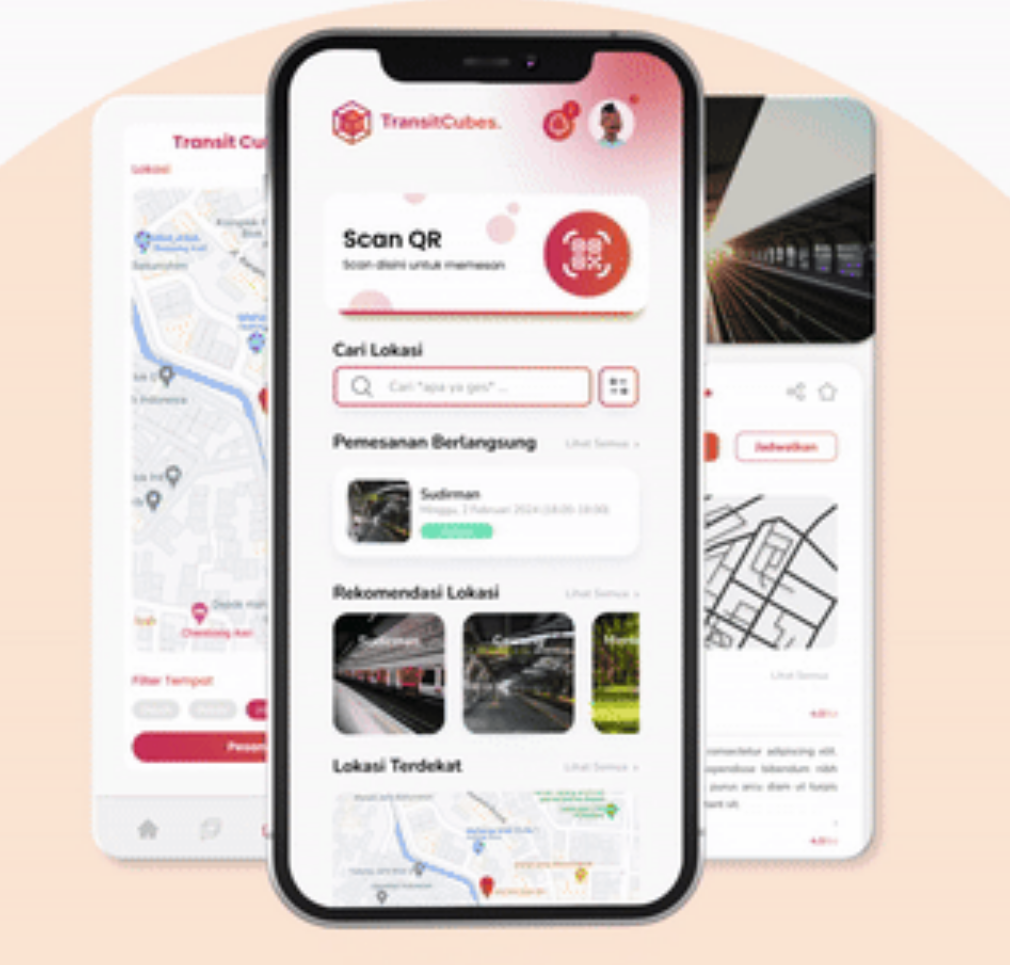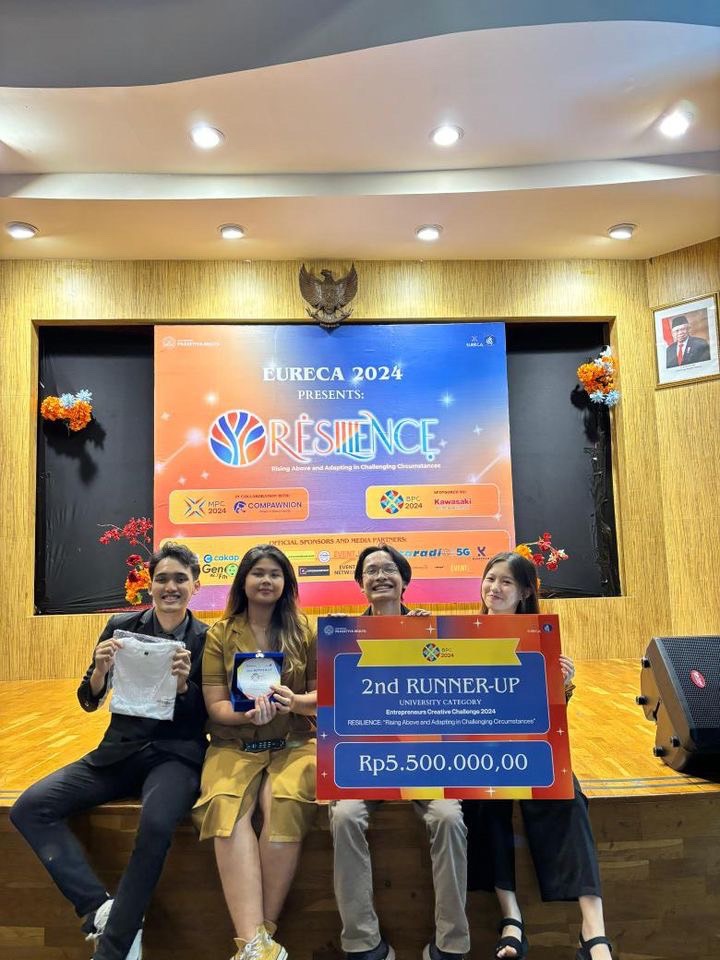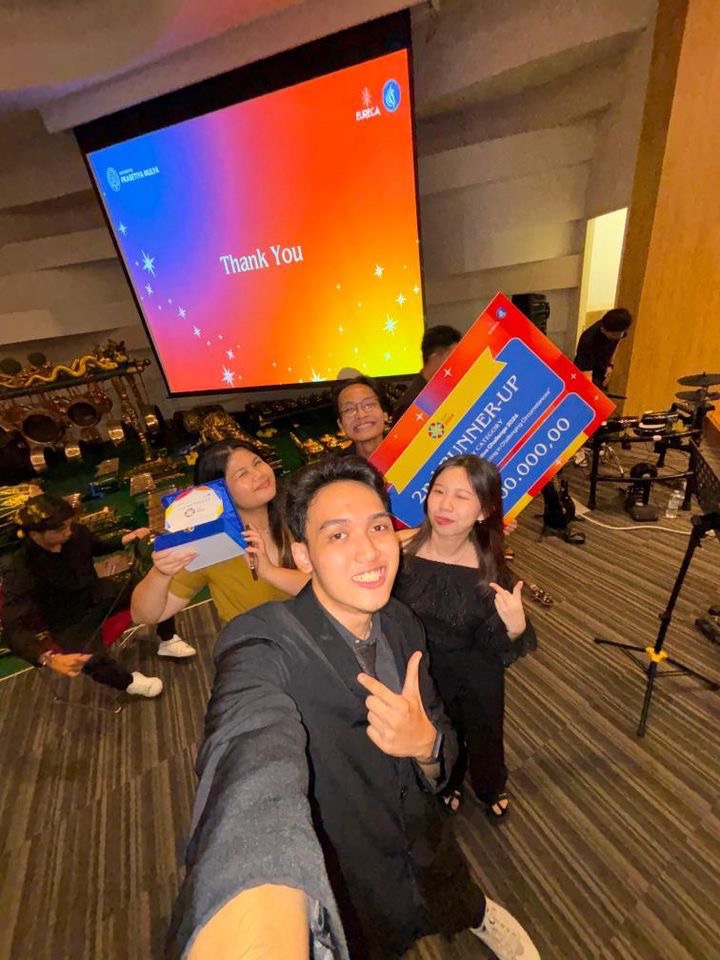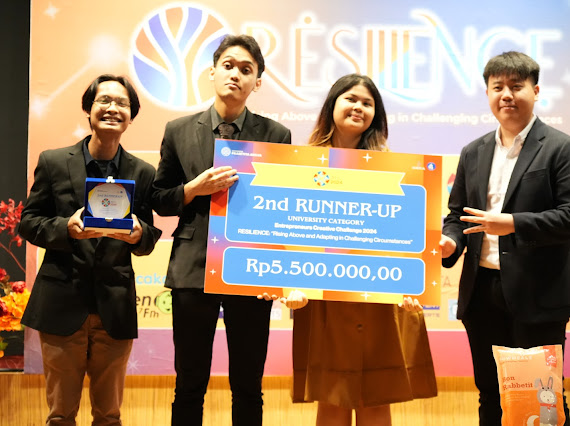Three students from Universitas Indonesia (UI) have introduced an alternative flexible workspace solution for highly mobile workers who need a workspace in strategic locations. TransitCubes, designed by UI students from various faculties, includes Rafie Amandio Fauzan from the Computer Engineering Program, Faculty of Engineering (FT) UI, class of 2021; Christy Evengelica Duma from the Chemistry Program, Faculty of Mathematics and Natural Sciences (FMIPA) UI, class of 2021; and Muhammad Zaidan from the Economics Program, Faculty of Economics and Business (FEB) UI, class of 2021.
TransitCubes are private work booths offering soundproof rooms, ergonomic desks and chairs, internet access, air conditioning, and lighting. They are intended to be placed strategically at public transportation hubs and can be accessed via an app for booking and payment.
The creation of TransitCubes is motivated by the rapid growth and development in Jakarta, which demands swift movement from workers. In contrast, a survey by the Jakarta Transportation Council (DTKJ) shows that 44.2% of workers in Jabodetabek spend 30-60 minutes commuting, 34.6% spend 1-2 hours, 13.2% spend under 30 minutes, and 1.4% spend more than 3 hours.
This phenomenon has led to the concept of working from anywhere. With this concept, workers can avoid traffic congestion, improve performance by up to 4.4%, and increase productivity and focus. TransitCubes are aimed at remote workers, freelancers, and urban communities.
“TransitCubes provide a solution for the need for flexible workspaces fth workers and students in Jakarta. Due to their strategic placement at public transportation hubs like stations, customers can optimize their productive time even while travelling,” said Rafie.
The Dean of FTUI, Prof. Dr. Ir. Heri Hermansyah, ST., M.Eng., IPU., expressed his appreciation, saying, “TransitCubes is an innovative solution addressing the need for flexible workspaces amid Jakarta’s rapid movement. The cross-disciplinary collaboration by Rafie and his team highlights the importance of synergy in tackling social issues around us. Hopefully, this innovation will inspire many and bring positive change.”
***
Public Communication Office
Faculty of Engineering Universitas Indonesia





